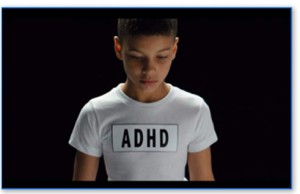Psychology Today – December 2, 2012
by Allen Frances, former Chairman, DSM-IV Task Force
APA approval of DSM-5 is a sad day for psychiatry.

“During the past two decades, child psychiatry has already provoked three fads- a tripling of Attention Deficit Disorder, a more than twenty-times increase in Autistic Disorder, and a forty-times increase in childhood Bipolar Disorder.” – Allen Frances
This is the saddest moment in my 45 year career of studying, practicing, and teaching psychiatry. The Board of Trustees of the American Psychiatric Association has given its final approval to a deeply flawed DSM 5 containing many changes that seem clearly unsafe and scientifically unsound. My best advice to clinicians, to the press, and to the general public – be skeptical and don’t follow DSM 5 blindly down a road likely to lead to massive over-diagnosis and harmful over-medication. Just ignore the ten changes that make no sense.
Note: Read the full article here – the below excerpts are taken from the original article published in Psychology Today
1) Disruptive Mood Dysregulation Disorder: DSM 5 will turn temper tantrums into a mental disorder– a puzzling decision based on the work of only one research group. We have no idea whatever how this untested new diagnosis will play out in real life practice settings, but my fear is that it will exacerbate, not relieve, the already excessive and inappropriate use of medication in young children. During the past two decades, child psychiatry has already provoked three fads- a tripling of Attention Deficit Disorder, a more than twenty-times increase in Autistic Disorder, and a forty-times increase in childhood Bipolar Disorder. The field should have felt chastened by this sorry track record and should engage itself now in the crucial task of educating practitioners and the public about the difficulty of accurately diagnosing children and the risks of over- medicating them. DSM 5 should not be adding a new disorder likely to result in a new fad and even more inappropriate medication use in vulnerable children.
2) Normal grief will become Major Depressive Disorder, thus medicalizing and trivializing our expectable and necessary emotional reactions to the loss of a loved one and substituting pills and superficial medical rituals for the deep consolations of family, friends, religion, and the resiliency that comes with time and the acceptance of the limitations of life.
3) The everyday forgetting characteristic of old age will now be misdiagnosed as Minor Neurocognitive Disorder, creating a huge false positive population of people who are not at special risk for dementia. Since there is no effective treatment for this ‘condition’ (or for dementia), the label provides absolutely no benefit (while creating great anxiety) even for those at true risk for later developing dementia. It is a dead loss for the many who will be mislabeled.
4) DSM 5 will likely trigger a fad of Adult Attention Deficit Disorder leading to widespread misuse of stimulant drugs for performance enhancement and recreation and contributing to the already large illegal secondary market in diverted prescription drugs.
5) Excessive eating 12 times in 3 months is no longer just a manifestation of gluttony and the easy availability of really great tasting food. DSM 5 has instead turned it into a psychiatric illness called Binge Eating Disorder.
6) The changes in the DSM 5 definition of Autism will result in lowered rates- 10% according to estimates by the DSM 5 work group, perhaps 50% according to outside research groups. This reduction can be seen as beneficial in the sense that the diagnosis of Autism will be more accurate and specific- but advocates understandably fear a disruption in needed school services. Here the DSM 5 problem is not so much a bad decision, but the misleading promises that it will have no impact on rates of disorder or of service delivery. School services should be tied more to educational need, less to a controversial psychiatric diagnosis created for clinical (not educational) purposes and whose rate is so sensitive to small changes in definition and assessment.
7) First time substance abusers will be lumped in definitionally in with hard core addicts despite their very different treatment needs and prognosis and the stigma this will cause.
8) DSM 5 has created a slippery slope by introducing the concept of Behavioral Addictions that eventually can spread to make a mental disorder of everything we like to do a lot. Watch out for careless overdiagnosis of internet and sex addiction and the development of lucrative treatment programs to exploit these new markets.
9) DSM 5 obscures the already fuzzy boundary been Generalized Anxiety Disorder and the worries of everyday life. Small changes in definition can create millions of anxious new ‘patients’ and expand the already widespread practice of inappropriately prescribing addicting anti-anxiety medications.
10) DSM 5 has opened the gate even further to the already existing problem of misdiagnosis of PTSD in forensic settings.


SHARE YOUR STORY/COMMENT